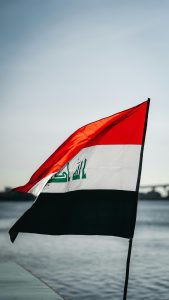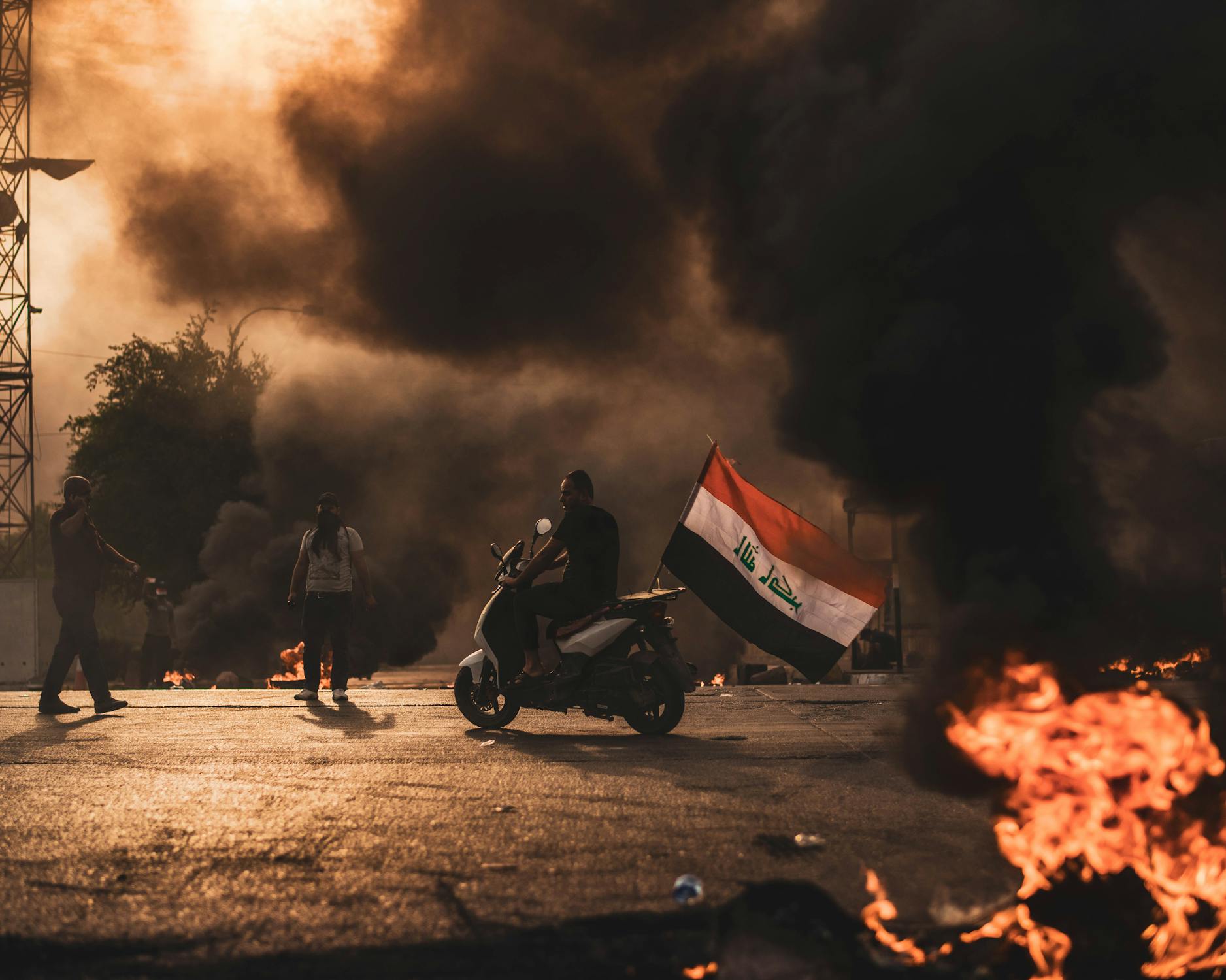Our client in collaboration with a local Iraqi implementing partner assigned Catalystas Consulting to conduct a baseline assessment for the project funded by the US governments The Bureau of Population, Refugees, and Migration (PRM) which runs for the span of 24 months, starting in Spring 2024.

The baseline assessment was designed to provide relevant insights into the post-2019 Tahsreen social movement in tandem with revolutions happening in Lebanon and Sudan, addressing key questions regarding the current state of fundamental freedoms in Iraq. The assessment explored the existing legal and institutional frameworks that govern rights such as the freedom of association and peaceful assembly. It also identified the key actors, stakeholders, and institutions involved in influencing human rights norms, and examined the prevailing attitudes, perceptions, and practices regarding human rights among civil society, governmental stakeholders, and local communities. Additionally, the research documented past initiatives and interventions aimed at protecting and promoting fundamental freedoms, and analyzed how political motivations and economic interests have intersected with the evolving civil rights landscape. A significant focus was placed on the transformation of civil society following the 2019 protests, and the assessment established baseline indicators, which will be used to monitor and evaluate the progress and impact of the project once implemented.
The research was conducted through a structured approach that began with a desk review phase, followed by the mapping of key actors involved in freedom of expression and assembly in Iraq. This included identifying duty bearers such as government representatives, security actors, and religious and political leaders, as well as civil society, activists, and NGOs. Our team of local and international experts conducted interviews and focus group discussions as our primary methods of data collection, engaging selected participants based on the actor mapping. Tailored questions were developed for each group to address the specific aspects of the research and provide their unique insights, based on their expertise and relevant backgrounds, adding richness and relevance to our report as well as ensuring a participatory and inclusive foundation for the implementation phase of the project.
In total, 62 interviews along with 8 focus group discussions were held across the targeted regions of Basra, Baghdad, Anbar, Najaf, Thi-Qar, the Kurdistan Region of Iraq (KRI) ,and Kirkuk. Our research methodology, designed to provide nuanced insights into the challenges surrounding civic space, freedom of expression, and assembly in Iraq, also ensured thorough representation of key actors that represent the different voices of the communities in Iraq.

The baseline assessment revealed that the mass protest movements in 2019 and 2021 significantly raised awareness, particularly among women and youth, about collective power and the need to address pressing issues such as unemployment, climate change, and the provision of basic services like education, water, sanitation, and labor rights. However, despite this increased awareness and activism, the protests have had limited success in improving the quality of life or meeting the demands of protesters. The report also highlighted the shrinking civic space in Iraq, both in online and offline environments, due to heightened scrutiny from politicized government branches, militias, and political parties, along with unclear judicial and regulatory practices. This environment is further exacerbated by physical violence, threats, slander, and even assassinations aimed at silencing critics and stifling calls for change. Growing concerns among Iraqi duty bearers, human rights defenders, multilateral organizations, and the international community have been raised regarding the proposed laws on freedom of expression, assembly, and cybercrimes. If enacted, these laws could further curtail the already limited civic space in the country. Concurrently, economic hardships have led to a shift in public demand from fundamental freedoms and human rights toward essential services, including water, electricity, education, and labor rights. This shift has resulted in reduced funding for both local and international non-governmental organizations (NGOs) that focus on freedom of expression and peaceful demonstrations, also increased censorship has further constrained the effectiveness of civil society, journalism, and academia, leading to a reduction in resources and training for youth and female-led campaigns advocating for human rights and fundamental freedoms.
We were aware from the start that working with such diverse communities, often with conflicting priorities and loyalties, would be challenging, and in order to navigate this complexity, we focused on creating an environment where people felt genuinely safe to speak and share their insights during the interviews. Every member of our team underwent thorough training on our ethical data collection methods, which included strict confidentiality measures, secure handling of sensitive information, and clear informed consent processes. Our team deliberately selected local data collectors who were native to each research area, ensuring they understood the cultural nuances and sensitivities specific to their communities. This approach helped address the preferences of close-knit, collectivist societies by providing a familiar and trustworthy point of contact, especially when discussing sensitive topics. We made sure participants fully understood why we were conducting the research, how their input would be used, and what measures were in place to protect them. This process helped the researchers and participants feel safe and encouraged to participate with full confidence in the aims of this research.
A key observation from the research is that youth are now regarded by all stakeholders as central to shaping Iraq’s future and leading protests—a significant shift from pre-2019 perceptions. While women are often seen as less active than men in human rights issues like freedom of expression and peaceful demonstrations, the baseline data shows that 39.4% of individuals with prior experience in human rights advocacy are women. This finding challenges societal perceptions, suggesting that women are nearly as active as men in civic activism, although their contributions are often undervalued compared to their male counterparts.

Based on this, Catalystas recommended a comprehensive approach to be adopted that included robust security training for human rights defenders—both online and offline—and the empowerment of youth through targeted workshops in negotiation, conflict resolution, and civic engagement. A gender-transformative perspective was emphasized to elevate women’s leadership, particularly in dialogue with security forces, while fostering closer cooperation with governmental and security actors through tailored training and collaborative committees. Throughout, we underscored the importance of culturally attuned interventions, sustained capacity-building, and a learning-based monitoring and evaluation framework to achieve a meaningful, long-term impact.
Based on our assessment, we believe that the this project presents a critical opportunity to foster meaningful connections, build capacity, and develop effective strategies to support human rights defenders (HRDs) and duty bearers, by expanding civic space and protecting human rights in Iraq, this project can play a vital role in addressing the systemic challenges that hinder progress and empower marginalized groups, including women and youth.
It’s important to note that at the time this case study was published this crucial project has been paused due to changes in the US Government development funding in accordance with the new Trump administration.
Amélie is a French-Canadian strategic development consultant with over 15 years of international experience on all continents, with the past six years focused on Asia Pacific and East Africa. Former social entrepreneur, regional NGO exec, researcher and lawyer-by-trade among other titles; she is a diverse professional currently based in Nairobi, Kenya. Amélie has worked in consulting on and off for 11 years across a range of industries and sectors, and has notably provided multiple market penetration and M&E analysis services, as well as risk assessments on the topics of forced labor and child labor in supply chains in Africa and in Asia.
Amélie completed her law degree in Quebec, Canada, and holds a Masters in International Law gained in Beijing, China. She has worked with organizations including the Thomson Reuters Foundation as Asia Pacific Manager (2019-2021), where she managed a portfolio of 250+ human rights research and advisory projects, prior to which she co-founded a social enterprise in the renewable energy sector in Rwanda, on the border of the DRC.
Amélie is proud to dedicate her time to driving social change through economic development and sustainable growth projects concretely in Southeast Asia and East Africa, and globally virtually. Amelie loves travelling, eating, and getting out of her comfort zone.
We built Lysta as an answer to one of our own problems: the need to quickly assemble teams of experts across various subject matter, geographic, linguistic, and thematic areas for projects and proposals as they arise. We quickly realized that we were not the only ones facing this challenge! With the speed that development projects require hiring, turnaround, and technical insights, we see first hand how helpful it is to have a ready-made database of vetted experts to call on.
For existing and potential Clients, you can access all consultant full profiles by signing up here as a client for free.
For consultants, adding your profile to Lysta means jumping to the top of the list for our clients in recruitment processes. We do the heavy lifting: the CV reviews, interviews, vetting, and personnel management; so when our clients come to us, they know they’re hiring someone they can trust to deliver high quality, timely results. Click here to add your profile for review.
We’re proud to be a link in the chain that connects the best of the best – don’t hesitate to reach out and see how you can put Lysta to work for you!